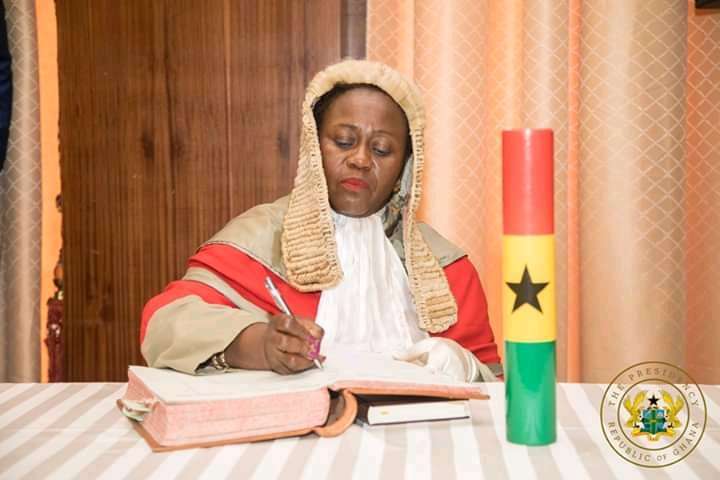The unfolding saga surrounding the suspension of Chief Justice Gertrude Torkonoo has entered a crucial phase with the commencement of formal hearings by a five-member investigative committee. Chaired by Supreme Court Justice Gabriel Scott Pwamang, the committee was established by President John Dramani Mahama following constitutional procedures outlined in Article 146(6) after consultations with the Council of State. The formation of the committee stemmed from the determination of a prima facie case against the Chief Justice, signaling the gravity of the allegations leveled against her. This inquiry marks a significant juncture in the proceedings, as the committee embarks on a thorough examination of the petitions that ultimately led to Justice Torkonoo’s suspension. The hearings represent the beginning of a fact-finding mission that will ultimately determine the fate of the suspended Chief Justice.
However, the timeline of events preceding the hearings has sparked controversy and raised questions about the procedural handling of the situation. Criticism has been directed at the decision to suspend Justice Torkonoo almost three weeks before the investigative committee even began its work. Effia MP Isaac Boamah-Nyarko has publicly voiced these concerns, questioning the rationale behind the preemptive suspension. He has also raised the issue of the absence of a defined timeline for the committee’s proceedings, emphasizing the need for a structured approach to ensure a timely and efficient investigation. The lack of clarity surrounding the duration of the inquiry has further fueled speculation and added to the already tense atmosphere surrounding the proceedings.
The central contention lies in the perceived disconnect between the suspension and the commencement of the investigative process. Critics argue that suspending the Chief Justice weeks before the committee’s first sitting creates an impression of prejudgment and potentially undermines due process. The absence of a clear timeline for the committee’s work exacerbates these concerns, leaving the process open to speculation and raising questions about its transparency. While the committee is tasked with meticulously examining the allegations against Justice Torkonoo, the circumstances surrounding its formation and operation have themselves become a subject of scrutiny.
The crux of the criticism revolves around the principle of due process and the importance of ensuring a fair and impartial investigation. Suspending the Chief Justice before the committee had even begun its work raises questions about the presumption of innocence and the potential for bias. The lack of a defined timeline for the committee’s proceedings contributes to this perception of procedural irregularity, creating an impression of an open-ended investigation with no clear endpoint. This uncertainty not only impacts the suspended Chief Justice but also potentially affects public trust in the judicial system.
As the committee delves into the substance of the allegations, the issues of timing and transparency will continue to loom large. The committee’s ultimate findings will undoubtedly have significant implications for the future of the judiciary and will be closely watched by legal experts, political observers, and the public alike. The committee’s challenge is not only to uncover the truth but also to conduct its investigation in a manner that upholds the principles of fairness, impartiality, and due process. The integrity of the entire process hinges on the committee’s ability to address these concerns and deliver a comprehensive and credible report.
In conclusion, the commencement of formal hearings by the investigative committee marks a pivotal moment in the ongoing saga surrounding the suspended Chief Justice. While the committee embarks on its crucial task of examining the allegations, it must also grapple with the procedural questions that have arisen regarding the timing of the suspension and the lack of a clear timeline for its work. The committee’s ability to navigate these complexities and conduct a thorough and transparent investigation will be critical to restoring public trust and upholding the integrity of the judicial system. The outcome of this inquiry will undoubtedly have far-reaching implications for the future of the judiciary and the rule of law in the country.


